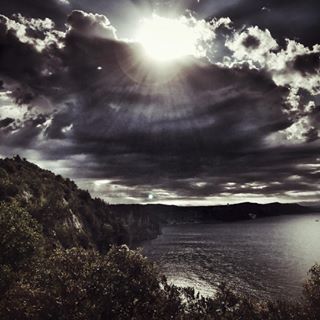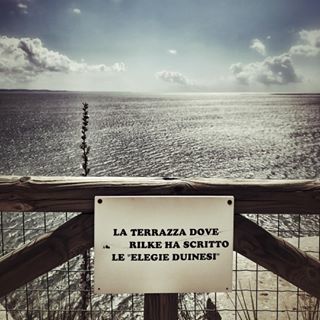What do you think?
Rate this book


304 pages, Paperback
First published January 1, 1923
Who's turned us around like this,
so that whatever we do, we always have
the look of someone going away? Just as a man
on the last hill showing him his whole valley
one last time, turns, and stops, and lingers -
so we live, and are forever leaving. (70)
And if I cried, who'd listen to me in those angelic
orders? Even if one of them suddenly held me
to his heart, I'd vanish in his overwhelming
presence. Because beauty's nothing
but the start of terror we can hardly bear,
and we adore it because of the serene scorn
it could kill us with. Every angel's terrifying. (16)
Hostility
is second nature to us. Having promised
one another distance, hunting, and home,
don't lovers always cross each other's boundaries? (38)
O hours of childhood,
when more than the mere past was behind
each shape and the future wasn't stretched out
before us. We were growing; sometimes we hurried
to grow up too soon, half for the sake of those
who had nothing more than being grown-up.
Yet when we were alone, we still amused
ourselves with the everlasting and stood there
in that gap between world and toy,
in a place which, from the very start,
had been established for a pure event. (42)
...we vanish in our feelings. (24)





"Of course, it is strange to inhabit the earth no longer,
to give up customs one barely had time to learn,
not to see roses and other promising Things
in terms of a human future; no longer to be
what one was in infinitely anxious hands"
"Strange to no longer desire one’s desires. Strange
to see meanings that clung together once, floating away
in every direction. And being dead is hard work
and full of retrieval before one can gradually feel
a trace of eternity.—Though the living are wrong to believe
in the too-sharp distinctions which they themselves have created.
Angels (they say) don’t know whether it is the living
they are moving among, or the dead. The eternal torrent
whirls all ages along in it, through both realms
forever, and their voices are drowned out in its thunderous roar."
"Silken thread, you were woven into the fabric.
Whatever the design with which you are inwardly joined
(even for only one moment amid years of grief),
feel that the whole, the marvelous carpet is meant."
Und wir: Zuschauer, immer, überall,What an unforgettable, sober and acute articulation of our human predicament …
dem allen zugewandt, und nie hinaus!
Uns überfüllts. Wir ordnens. Es zerfällt.
Wir ordnens wieder und zerfallen selbst.
Wer hat uns also umgedreht, daß wir,
was wir auch tun, in jener Haltung sind
von einem, welcher fortgeht? Wie er auf
dem letzten Hügel, der ihm ganz sein Tal
noch einmal zeigt, sich wendet, anhält, weilt-,
so leben wir und nehmen immer Abschied.
Of course, it is strange to inhabit the earth no longer,I had difficulties with the ponderous angel-centered allegory of the second Elegy, couldn’t penetrate the claustrophobic and troubled meditations on parentship in the Third and Fourth. I’ve always passed quickly over the Fifth. It strikes me almost as pure gobbledegook. But then the Sixth and Seventh Elegies form a moving triptych with the Eighth, my favourite. Rilke muses on the human condition filtered through the archetypes of the hero and those who die young.
to give up customs one barely had time to learn,
not to see roses and other promising Things
in terms of a human future; no longer to be
what one was in infinitely anxious hands; to leave
even one’s own first name behind, forgetting it
as easily as a child abandons a broken toy.
Strange to no longer desire one’s desires. Strange
to see meanings that clung together once, floating away
in every direction. And being dead is hard work
and full of retrieval before one can gradually feel
a trace of eternity. -
Unser Leben geht hin mit Verwandlung …Also the Ninth Elegy has a lot to offer:
Aber weil Hiersein viel ist, und weil uns scheinbarOr in Stephen Mitchell’s admirable translation:
alles das Hiesige braucht, dieses Schwindende, das
seltsam uns angeht. Uns, die Schwindendsten.
But because truly being here is so much; because everything here apparently needs us, this fleeting world, which in some strange wayAnd Rilke continues:
keeps calling to us. Us, the most fleeting of all.
Ein Mal jedes, nur ein Mal. Ein Mal und nichtsmehr. Und wir auch ein Mal. Nie wieder. Aber diesesThe Tenth Elegy remains a riddle to me.
ein Mal gewesen zu sein, wenn auch nur ein Mal:
irdisch gewesen zu sein, scheint nicht wiederrufbar.


